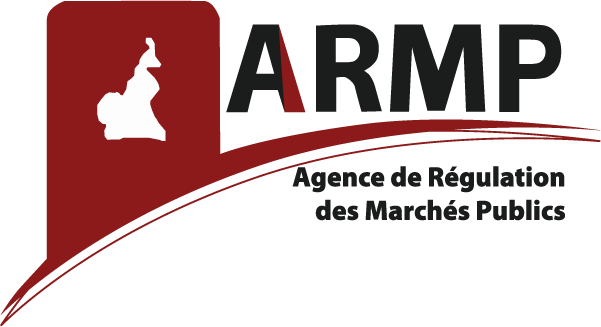The National Community-driven Development Program (PNDP), whose third phase kick started on April 2016, is one of the operational frameworks of the Growth and Employment Strategy Paper put in place by the Cameroon Government with the support of several technical and financial partners. Through such a tool, the Cameroon Government intends to provide local governments with skills and necessary means likely to enable them to set up riches and employment-generating conditions and opportunities for the youths, more specifically with a view to enhancing the living conditions of the most disadvantaged populations.
Since 2004, PNDP had been gradually implemented nationwide in three successive phases of four years each. During its first implementing phase, it did cover 151 councils out of the 6 regions, namely: the Adamawa, Centre, Far-north, West, North and South regions. In its second implementing phase, PNDP covered the 329 councils mostly located in the 10 regions. It should be emphasized that during its two first phases PNDP did benefit, in addition to the internal public resources (PIB, HIPC), from external public fundings governed by conventions or special agreements entered into with the World Bank (IDA), the French Cooperation (Debt Relief Development Contract or C2D) as well as with the German Cooperation (KFW). To all these fundings, should be added those stemming from the beneficiaries under the framework of their contributions for the achievement of their micro projects.
Following the first two phases deemed satisfactory, financial partners such as the World Bank have agreed to allocate a new Credit aimed at financing the third phase of the Program that kick started on April 2016 and is expected to be rounded up at the end of 2019. This 3rd phase which is called upon to be considered as that of the consolidation of the vested interests, intends therefore not only to cover the whole of the 360 councils in Cameroon, but equally to provide support to the ongoing decentralization process, thereby laying special emphasis on the improvement in terms of management of local public funds. One of the main challenges to be met during this phase therefore dwells on the sustainability of the Program’s vested interests.
Actions carried out under PNDP can be broken down into three main components as follows: (i) support to local development; (ii) support to councils under the decentralization context; and mostly (iii) aspects such as coordination, management, monitoring and evaluation, and communication.
The main beneficiaries are undoubtedly the 360 councils and their grassroots communities whose target groups are: (i) the mayors and municipal councilors (ii) the council revenue collectors and councils’ financial agents (iii) the executives in charge development at the local level; (iv) the villages-based Consultation Committees. Other stakeholders involved in the implementation of the Program shall be referred to as the State’s external services, the civil society’s organizations that benefit from capacity-building initiatives, likely to enable them to provide an appropriate support to councils as well as to their communities so as to allow them to play a major role as far as the development of their locality is concerned.
The objective assigned to the mission revolves around mentoring the International Task Force (GTI) on the brainstorming exercise that focuses on the sustainability of PNDP’s vested interests and on the drawing up of a plan of actions (2018-2020), along with the technical and viable options in support to the Program’s sustainability process.
More specifically, the said Task Force is expected to be backed up as follows:
• Monitor the performance of studies earmarked for consultants specially hired for that purpose;
• See to it that the results stemming from the said studies as well as other identified activities are in line and in connection with the Program’s activities in terms of sustainability ;
• Capitalize on the results of the two Task Forces referred to above, with a view to fueling the brainstorming exercise within the International Task Force (GTI) ;
• Some Encourage sector-based discussions within the task force and, where and when necessary, with other stakeholders with a view to securing some changes (through participatory workshops and view-sharing sessions, etc.);
• Ease the preparation of sessions in line with the Technical Secretariat;
• Based on the results of studies carried out and on the ITF’s proceedings, provide some coaching to the latter, more specifically as concerns the preparation of a plan of action to be submitted to the Government with a view to securing the sustainability of PNDP’s activities;
• Perform any other activity entrusted to it by the ITF (GTI).
A detailed log book shall be put at the disposal of the selected Individual Consultant and appended to his/her contract/agreement.
The said mission is expected to kick start in June 2017 and to come to an end latest in April 2018, thereby representing a period of ten (10) months. In the same vein, the consultant is not expected to work on a full-time basis as far as the said mission is concerned. The number of man/day under the context of this mission should be estimated at 45MD.
The national Coordinator of PNDP hereby invites individual consultants herein referred to as the eligible (« Consultants ») to express their interest by providing the services described above to provide information attesting to that they are qualified to perform the said services (brochures, references in connection with the execution of similar contracts, experience gathered under similar conditions, etc.) and that they have successfully performed similar services, (services often terminated in good terms and conditions .
The evaluation criteria shall be as follows:
- Have a minimum qualification of the GCE « A » level +5 years in areas such as agronomy, economy, projects management and administration;
- Have an overall experience of at least ten (10) years ;
- Have at least five (05) years of a specific experience in the area of local development and decentralization;
- Have a proven experience in terms of conduct of organizational changing ;
- Have a sound knowledge in terms of technical conduct for organizational change ;
- Have a sound knowledge of the decentralization context in Cameroon as well of the functioning of the Cameroonian administration.
English and/or French shall be the working language(s).
Candidates shall be required to furnish the following documents:
• Cover letter ;
• A detailed curriculum vitae that highlights the qualifications and experience as concerns similar missions performed;
• The duly true certified copies of the degrees/diplomas required;
• Evidence attesting to the references as concerns similar missions.
PNDP shall reserve the right of verifying the authenticity of the above-mentioned information.
A consultant shall be chosen based on the individual selection method in in compliance with the procedures laid down in the convention concluded with the French Development Agency, the Administrative and Financial Procedures enforced under PNDP.
The written Expressions of interest (one original and six copies) must be submitted to the address mentioned below, latest on 2nd June 2017 at 03:00 prompt (local time) and must bear the following mention « Request for Solicitation for Expression of Interest for the selection of an Individual Consultant called upon to provide support to the mentoring activities of the task force tasked with carrying out brainstorming exercises as concerns PNDP’s sustainability activities»
Interested Consultants shall be called upon to obtain further information as concerns the purpose of this expression of interest at the same address.
National de Coordination Unit of PNDP, located at Nouvelle Route Bastos, opposite UNDP (PNUD) .P.O Box: 660 Yaounde, Cameroon.
Phone N0s: 222 21 36 64/222 21 36 65, and during the following working hours: from 08:00 a.m., to 05:00 p.m., local hours.

